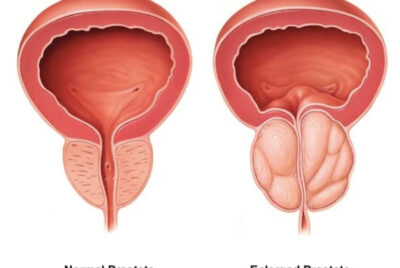Enlarged Prostrate BPH Symptoms and causes
Enlarged Prostrate BPH Symptoms and causes
Hey there, fellow enthusiasts of male health and well-being! Today, I’m diving into a topic that often remains in the shadows but deserves our attention. The Enlarged Prostate BPH Symptoms and Causes. As someone who’s passionate about the male enhancement niche, I want to provide you with insights and suggestions on understanding the topic of the enlarged Prostrate BPH Symptoms and causes and how to manage it effectively.
Introduction
Understanding the Prostate
Before we get into the nitty-gritty of BPH, let’s take a moment to understand the prostate’s role in our lives. The prostate, a small gland nestled beneath the bladder, plays a significant role in male health. It’s involved in the production of seminal fluid, which nourishes and protects sperm. However, sometimes, this tiny powerhouse can face some issues, and one of them is BPH.
What is enlarged Prostrate BPH Symptoms and causes?
BPH stands for Benign Prostatic Hyperplasia, a condition where the prostate gland enlarges but is non-cancerous. That’s right; it’s benign, not malignant. But, as it grows, it can cause various issues. Now, let’s delve into the symptoms.
Symptoms of BPH
BPH symptoms can creep up on you, and they usually revolve around your urinary habits. You might find yourself running to the bathroom more frequently or experiencing difficulty in starting and stopping urination. It can be bothersome.
Common Symptoms include:
Obstructive Symptoms:
- Poor urine stream
- Urinary hesitancy
- Weak urine stream
- Difficulty initiating urination
- Dribbling at the end of urination
- Painful urination
- Pain during ejaculation
- Blood in the urine (hematuria)
Irritative Symptoms:
-
- Frequent urination
- Urgent or frequent urination during the day and night
- Nocturia (waking up at night to urinate)
- Urinary retention (feeling unable to empty the bladder)
Causes and Risk Factors of Enlarges Prostrate BPH:
BPH is often associated with aging and hormonal changes, particularly the decrease in testosterone levels and increased estrogen production. Dietary choices, such as high red meat and dairy consumption, may also contribute to the development of BPH. Family history, ethnicity, high cholesterol, excessive weight, poor diet, and immoderate alcohol consumption can be risk factors. Conditions like diabetes, high blood pressure, metabolic syndrome, and atherosclerosis should be considered as well.
Why Do These Symptoms Occur?
You might wonder what causes these symptoms. Well, it’s primarily about aging and hormonal changes. As men get older, their testosterone levels decrease while estrogen levels increase. This hormonal shift can lead to the growth of prostate tissue. But don’t worry, we can manage the Enlarged Prostrate BPH Symptoms and causes.
Prevalence of BPH
BPH is more common than you might think, especially among older men. It’s like a rite of passage in the aging process. An enlarged prostate is one of the most common health problems for men over the age of 50. More than 90% of men over 80 have experienced it. So, you’re not alone if you’re dealing with it.
Risk Factors
Various factors can increase your risk of developing BPH. Lifestyle choices, diet, and even your family history can play a role. So, it’s essential to be aware of these factors and make informed decisions.
My Experience with Enlarged Prostrate BPH and It’s Symptoms
I can’t help but share a personal anecdote. Yes, I’ve faced BPH symptoms too. The frequent trips to the bathroom and the occasional urgency are no joke. It made me realize the importance of addressing these symptoms.
Diagnosis and Evaluation:
When it comes to diagnosis, your doctor might use various methods. I’ve personally experienced some of these diagnostic tests, and they can be quite revealing. The digital rectal examination (DRE) is one such test that can provide important insights.
Understanding PSA Levels
One aspect of BPH diagnosis involves PSA or Prostate-Specific Antigen levels. I’ve been through PSA tests, and they can offer valuable information, although there’s more to understand about them.
Complications of Untreated BPH
Here’s the thing: untreated BPH can lead to complications. Acute and chronic urine retention, bladder stones, blood in the urine, and urinary tract infections are some of the potential issues. Trust me; you don’t want to go there.
Managing Enlarged Prostrate BPH
Thankfully, there are treatment options available for managing BPH. It’s essential to explore these options and find the one that suits you best. I’ll offer some personal advice on how to choose the right treatment.
Natural Remedies and Lifestyle Changes
If you’re like me and prefer natural approaches, there are remedies and lifestyle changes that can help alleviate BPH symptoms. These changes can make a significant difference in your daily life.
My Top Recommendations: Enlarged Prostrate BPH Symptoms and causes
Lifestyle Modifications:
To naturally address an enlarged prostate, consider making the following lifestyle changes:
- Diet: Consume a prostate-friendly diet rich in fruits, vegetables, legumes, nuts, seeds, and healthy fats. Avoid excessive red meat and dairy, which can impact hormonal balance and prostate health.
- Exercise: Regular physical activity may help prevent prostate enlargement and manage BPH symptoms. Stay active to improve overall health.
- Pelvic Floor Training: Pelvic floor exercises, such as Kegel exercises, can strengthen the pelvic muscles and help manage incontinence, a common issue related to BPH.
- Stress Management: High stress levels can adversely affect your prostate health. Learning to manage stress through relaxation techniques can help improve your overall well-being.
Supplements:
Several supplements have shown promise in managing BPH naturally:
- Ryegrass Pollen: Clinical studies suggest that ryegrass pollen can be effective in treating an enlarged prostate, with a high positive response rate among patients.
- Beta-Sitosterol: Beta-sitosterol, found in plant foods, has been shown to reduce BPH symptoms and improve urination flow.
- Boron: Recent research indicates that boron can selectively kill prostate cancer cells while leaving healthy cells unharmed.
- Pygeum Africanum: This herb, found in Africa, contains phytosterols that produce an anti-inflammatory effect, helping to relieve BPH symptoms.
- Turmeric (Curcumin): Curcumin, the active ingredient in turmeric, is a potent anti-inflammatory agent and may help alleviate BPH-related discomfort.
- Ellagic Acid: Found in various fruits, ellagic acid can induce apoptosis (cell death) in prostate cancer cells.
- Japanese Sophora (Quercetin): Quercetin, derived from plants, is an effective anti-inflammatory that can reduce prostate-related pain and swelling.
Complications of Untreated Enlarged Prostrate BPH
Ignoring BPH symptoms can lead to complications that affect your quality of life. Some of these complications include:
1. Acute Urine Retention
This occurs when you suddenly can’t urinate at all. It’s painful and requires immediate medical attention.
2. Bladder Stones
Stagnant urine can lead to the formation of bladder stones, causing discomfort and infection.
3. Blood in Urine
Unresolved BPH can result in blood in the urine, which requires investigation to rule out other conditions.
Conclusion: Enlarged Prostrate BPH Symptoms and causes
In conclusion, understanding the Enlarged Prostrate BPH Symptoms and causes is crucial for maintaining a good quality of life. If you’re facing any of these symptoms, don’t hesitate to seek medical advice. There are various treatment options, including natural remedies, to help you manage BPH effectively. For further reading on this topic Prostrate Health Tips
FAQs
Q1: How common is BPH among younger men?
A1: BPH is more prevalent in older men, usually over the age of 50. Younger men can also experience it, but it’s less common.
Q2: Are BPH and prostate cancer related?
A2: While they both affect the prostate, BPH is non-cancerous, whereas prostate cancer is malignant. They are separate conditions.
Q3: Can dietary changes really help manage BPH symptoms?
A3: Yes, certain dietary adjustments can have a positive impact on BPH symptoms. It’s worth exploring.
Q4: How often should I get a PSA test for monitoring BPH?
A4: The frequency of PSA tests should be discussed with your healthcare provider. It depends on your individual risk factors.
Q5: What are the natural remedies you recommend for BPH?
A5: Natural remedies include dietary changes, exercise, and herbal supplements. However, it’s important to consult with a healthcare professional before trying them.
I hope this article has been informative and relatable. Remember, you’re not alone in dealing with BPH, and there are ways to manage it effectively. Stay informed, make the right choices, and prioritize your well-being.
By using this source, you can access scientific studies and commentaries that will provide authoritative and evidence-based information for your article.




